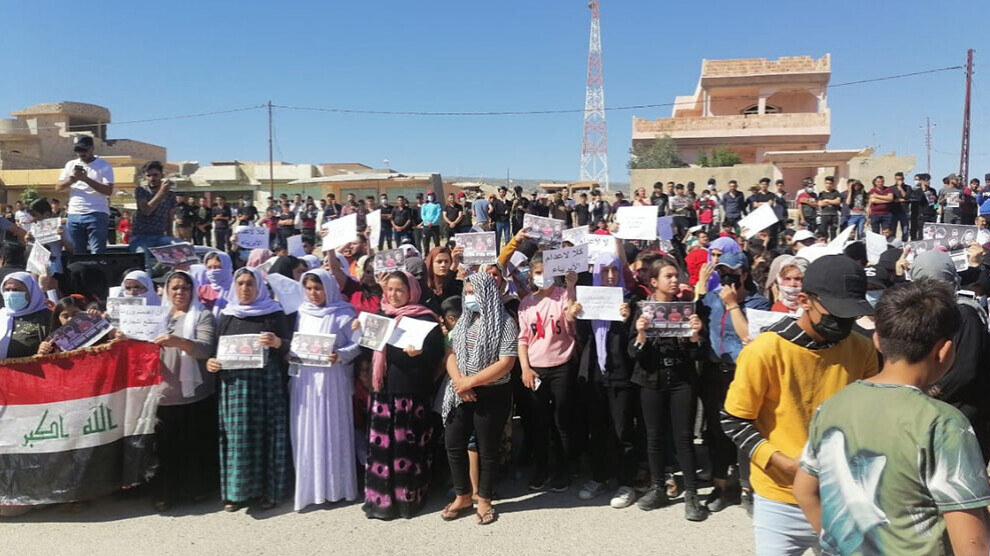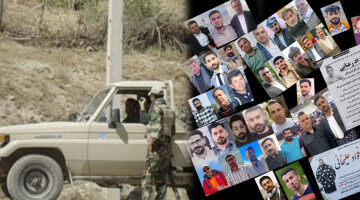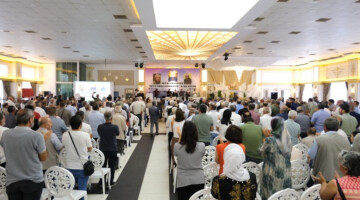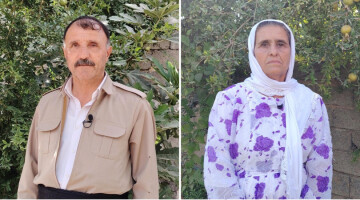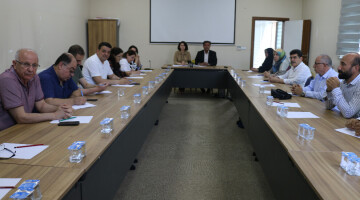A death sentence against several survivors of the IS genocide is causing a great stir in the Yazidi region of Shengal (Sinjar). The Shengal Democratic Autonomous Council (MXDŞ) announced today in Sinûnê that four young men under the age of 20 were sentenced to the death penalty by an Iraqi court in Mosul on Wednesday. The Yazidis were charged, without any evidence, with murder of two members of the Arab Shammar tribe. The bodies of the two men had been found on the connecting road to the village of Til Ezer (ar. al-Qahtaniyya) on September 26, 2020. That same day, Iraqi security forces raided the village and arrested the four Yazidis. Shortly thereafter, a court in Mosul already ordered arrest warrants. The people concerned deny the murder accusations against the members of the originally Bedouin tribe, and their parents also strongly contradict the accusations.
"The verdict of the court in Mosul against four young members of our community is the political decision of an arbitrary justice. We are shocked and stunned," said Xezal Reşo of MXDŞ. For years, thousands of IS jihadists have been serving time in Iraq's detention centers for crimes against the Yazidis and their involvement in the August 3, 2014 genocide, she said. "Yet despite clear evidence against them, death sentences were issued in only a handful of cases. We want to know why Iraqi courts are disposing of Yazidis' cases within a short time."
Verdict means another ferman
According to the MXDŞ, the verdict amounts to another ferman (decree; the term ferman dates back to the official massacre orders of Ottoman sultans. Since then, the now 74 organized waves of persecution and murder of Yazidis have been referred to as ferman), Reşo continued. "We as MXDŞ call on the Yazidi people to take to the streets against this injustice done to our youth. If we remain silent today, hundreds of us will be affected tomorrow."
Demonstration in Shengal
In Shengal itself, the first demonstration has already taken place on Friday. Hundreds of people marched from Naser Square behind a front banner with the inscription "Whoever remains silent makes himself a stooge of the oppressors" to the representation of the Iraqi central government. Many women held photos of the four convicts. The march culminated in a rally, but it was repeatedly interrupted with loud calls for "justice." A statement read on behalf of the Yazidi community, Xeyrî Şengalî, exhorted the Iraqi judiciary to uphold "law and order." "Before the law, we should all be equal. It should not happen that courts make politically or religiously motivated judgments." The trial of the four Yazidis is now likely to go to appeal. If the death sentence is upheld, the execution order must be ratified by President Barham Salih. According to Iraqi law, death sentences cannot be carried out without his signature.
Hundreds of death sentences approved this year
Iraq is one of the five countries in the world where the highest number of death sentences are pronounced and carried out each year. The death penalty was suspended by the U.S. interim administration after the fall of dictator Saddam Hussein. In 2004, however, Baghdad reintroduced it, claiming that it was intended to curb violence in the country. At the beginning of this year alone, more than 340 death sentences were approved in Iraq by President Barham Salih.

